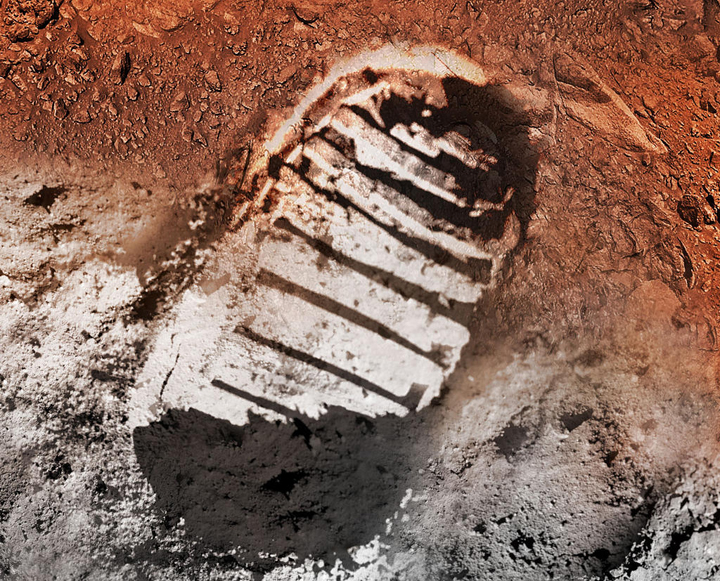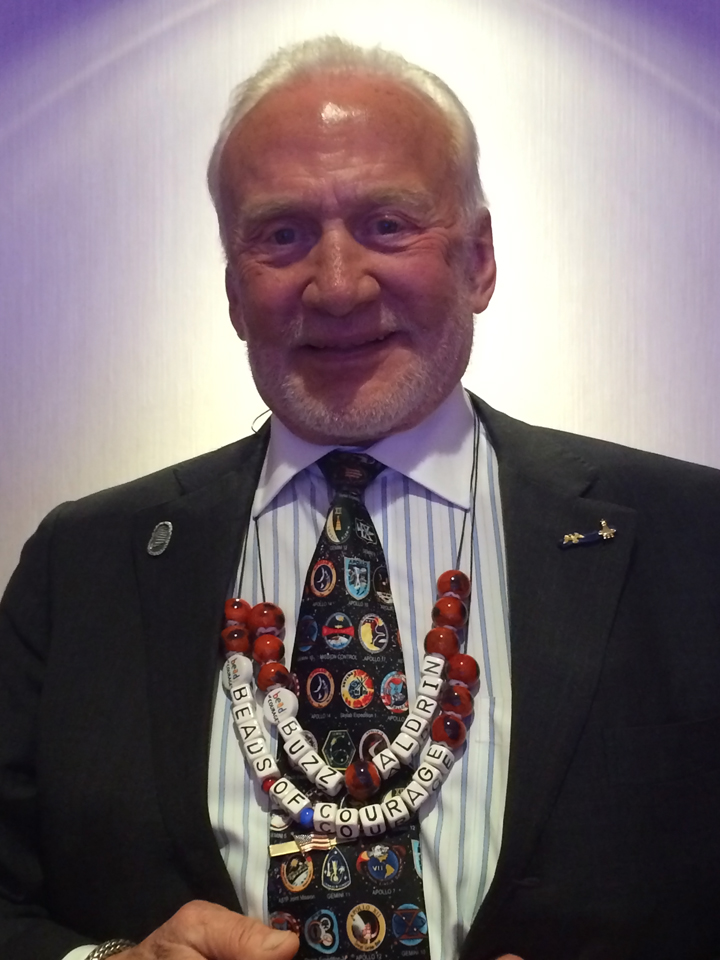TORONTO – Heading to Mars is a must for Buzz Aldrin. But don’t plan on coming back anytime soon.

The former NASA astronaut and second man on the moon was in Toronto this weekend for the National Space Society’s International Space Development Conference, an event that brought together scientists, businesses, educators, and students from around the world to discuss the future of space.
The Apollo 11 astronaut believes that sending people to the red planet may mean leaving them there — for now. When asked when we might first see people on Mars, he said, “Not so soon that we have to bring them back.”
The plan might sound similar to the Mars One Project, a privately run initiative to colonize the red planet by 2025. But leaving people on Mars is where the similarities end.
Aldrin believes that we need to have patience and that it would be more cost-effective to leave people on Mars as settlers. His vision consists of getting people to the planet by 2035 and in various stages. And the idea is to continue to send humans to Mars in intervals.
The outspoken Aldrin also acknowledged that, unlike his early days as an astronaut during the 1960s, it won’t be a race to space, but rather a collaborative effort with countries around the globe — including the robotics knowledge that Canada has become so recognized for.
Aside from Aldrin, there were big names on hand: Marc Garneau, the first Canadian in space and now Minister of Parliament; physicist Kip Thorne, the brains behind the recent and successful movie Interstellar; Alan Stern, principle investigator for the New Horizons mission due to fly by Pluto in mid-July; and even famed meteorite hunter Geoff Notkin of the series Meteorite Men, as well as many more.
Thorne, an expert in black holes, also believes that heading out into space is the path of humankind, though heading beyond our solar system poses much more of a challenge (it won’t come with the fantastical wormhole used in Interstellar, as current theory suggests that wormholes are unstable and are only open for an extremely brief period of time).
“I think it’s clear that it’s attainable to colonize the solar system,” he said. “Getting beyond the solar system is going to be exceedingly difficult. The first thing is the solar system. And we have not been moving at the pace we should be or we could.”

Get daily National news
“Space belongs to everyone,” Thorne said. “I think we will voyage beyond the solar system… it’s a matter of a large effort over a long period of time.”
LISTEN: Interview with famed physicist, and the brains behind the movie Interstellar, Kip Thorne
The New Horizons mission, headed by Stern, is due to make its closest flyby of Pluto on July 14, which could be touted as one of the most ambitious missions to date, as it is the farthest dedicated mission — and fastest spacecraft — ever sent from Earth.
Stern stressed that a mission like this hasn’t happened since the Voyager spacecraft reached Jupiter and Saturn in the 1970s, and that this will open up a whole new world of understanding a different class of planets.
Bringing space down to Earth
One of the most popular guests at the conference was the host of the show Meteorite Men, Notkin. Notkin has made a successful career out of finding meteorites, debris left over from the formation of our solar system and the early universe.
Notkin in part credits Toronto’s Royal Ontario Museum for his path toward a career in meteorites. Though he had become quite familiar with the museum and its collection of meteorites in London, England, he was enthralled with the Toronto museum’s collection when he visited the city as a 13-year-old boy.
“I feel like I owe Ontario an inspirational debt,” he said during an interview with Global News.
Listen: Interview with Geoff Notkin of Meteorite Men
But it’s not just about finding meteorites that gets Notkin excited, it’s about passing the love of science on to future generations, something that was clearly evident based on number of kids that flocked to his table after his talk.
“One of my missions is not to tell kids, but to show kids that science is fun and exciting,” he said. “If you are in fact a big kid yourself like me — and there’s nothing I enjoy more than playing with robots or rockets or going out and getting covered in mud looking for fossils — that’s what science is.”



Comments